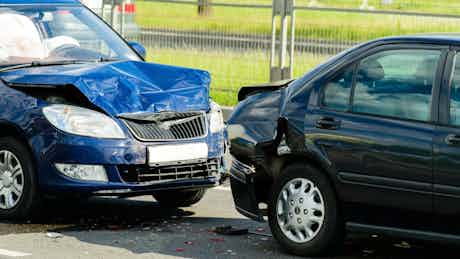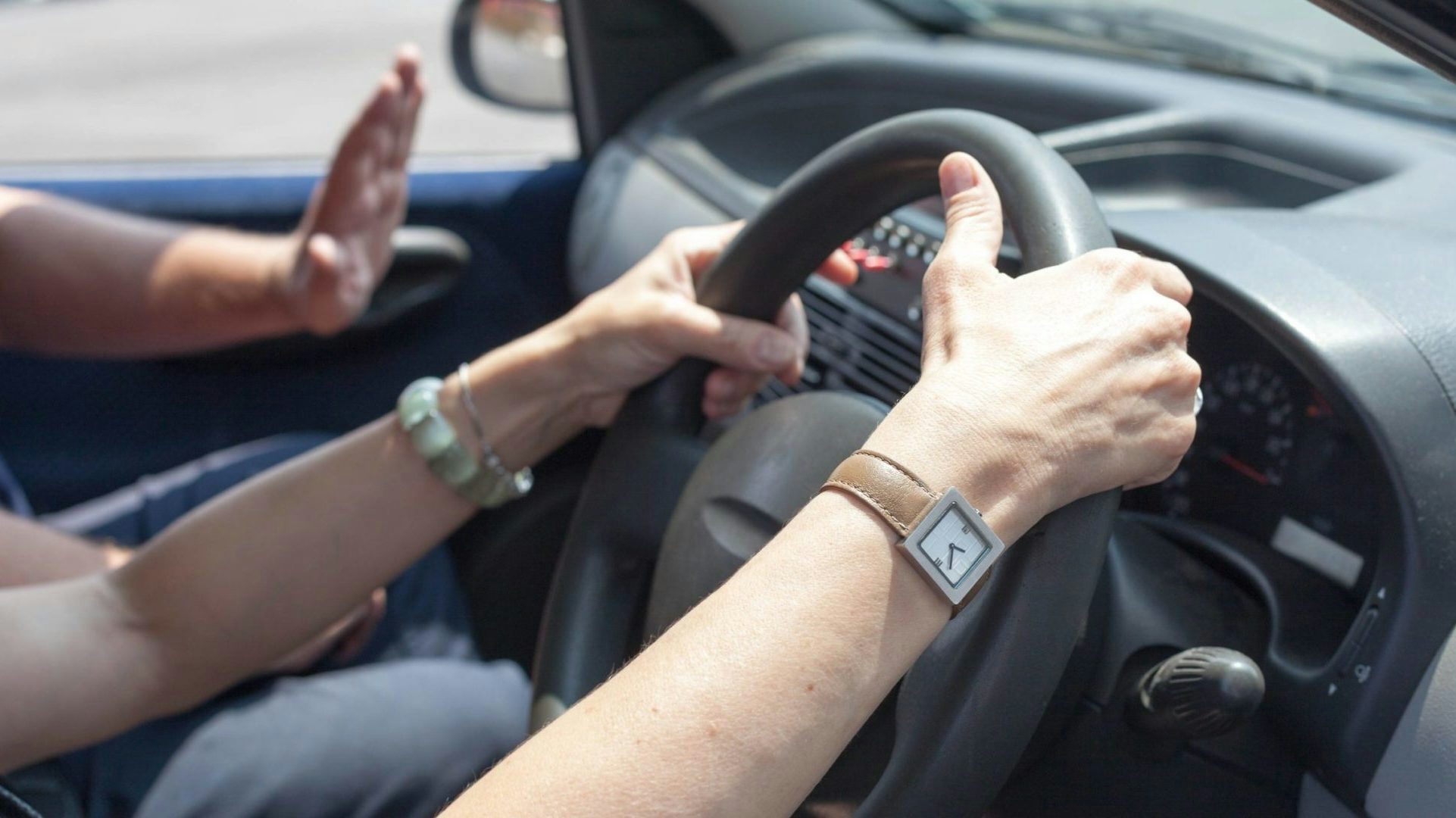Types of car insurance: Which one do you need?
February 15, 2023 by carwow staff

Car insurance is one of the biggest motoring-related expenses you have to shell out for, and the different types of cover can appear a little confusing. Keep reading to find out more about car insurance and which cover is right for you.
The main types of car insurance in the UK are:
- Third party
- Third party, fire and theft
- Fully comprehensive
Keep reading to find out all you need to know about car insurance in the UK and which level of cover you need.
Third party insurance
Third party car insurance is the most basic level of cover you can get and still be legal to drive. In theory, this should also be the cheapest option, however, this isn’t always the case.
Third-party insurance offers you the least protection if your car is damaged or stolen, in fact, it only really pays out for damage done to other people’s vehicles or property.

What does it cover?
- Damage to other people’s vehicle or property
- Any injuries you’ve caused to others
- Injuries to your passengers
What doesn’t it cover?
- Your own injuries
- Accidental damage to your own car
Taking out third party insurance can be risky because if your car is stolen or damaged you won’t get any money back for it. If someone else hits your car, then their insurance will pay for the damage.
Third-party, fire and theft insurance
Third-party, fire and theft cover offers all the protection of a third party policy, so any damage you cause to other people’s property is covered.
As the name suggests, this level of cover includes protection for fire damage and the cost of replacement if your car is stolen.

What does it cover?
- Damage to other people’s vehicle or property
- Any injuries you’ve caused to others
- Injuries to passengers
- Damage caused by fire, including attempted arson
- Cost of replacement if your car is stolen
What doesn’t it cover?
- Your own injuries
- Accidental damage to your own car
You do get more protection with third-party, fire and theft, however, you still have no protection if you’re involved in an accident that is your fault.
Fully comprehensive car insurance
Fully comprehensive insurance offers the best level of protection in the event of an accident. It may cost a bit more but it could save you a fortune if the worst should happen.
Comprehensive cover will pay out for accidental damage to your own car, even if it was your own fault. You also get all the same cover as you get with third-party, fire and theft.

What does it cover?
- Damage to other people’s vehicle or property
- Any injuries you’ve caused to others
- Injuries to passengers
- Damage caused by fire, including attempted arson
- Cost of replacement if your car is stolen
- Accidental damage, even if it was your own fault
What doesn’t it cover?
- Breakdown cover
- Windscreen protection
Some policies can have things like breakdown or windscreen cover added optionally. It’s worth shopping around for the best prices because sometimes getting breakdown cover separately can work out cheaper.
Are there any other types of car insurance?
There are a few different types of specialist car insurance that offer specific benefits depending on your car and situation.
Classic car insurance
If you own a classic car, the chances are you don’t drive it every day. This is where classic car insurance comes in, possibly offering cheaper cover than a traditional policy.

Any car over 15 years old usually falls into the classic category, however, this will vary between providers.
If you aren’t driving your classic on the road, you can get laid-up cover. This will cover your car if it’s damaged in a fire or stolen, however you can’t drive the car and it must be registered as SORN with the DVLA.
Telematics cover
Telematics cover can be a good option for new drivers who are looking to reduce their cover in the first few years on the road.
These are also referred to as ‘black box’ policies and involve having a tracker fitted to your car that monitors speed, acceleration and braking force.
Some policies offer discounts for safe driving, and some can increase your premiums or even cancel your policy if your driving is considered dangerous.
Learner driver insurance
Learner driver cover is great for those looking to hone their driving skills outside of their professional driving lessons.

You still need to have a qualified driver in the car with you who is over 21 years old and has held their licence for at least three years.
Track day insurance
Your normal insurance policy won’t cover you to use your car on the racetrack or for any form of motorsport. You can buy separate motorsport insurance to cover you if your car gets damaged while you’re hooning around the track.
Temporary car insurance
Also known as ‘temp cover’, this will insure you for a short period of time to drive a specific car or cars. Temp cover can be particularly useful if you are test-driving a new car being advertised by a private seller, or if you need to drive a friend or relative’s car for a few days. Companies specialise in selling temporary car insurance, but it may sometimes be cheaper to insure another car for a short period of time on your own insurance policy.
Driving abroad insurance
As with temp cover, there are specialist companies who will insure you when you’re abroad, but it may make more sense from a financial perspective to just upgrade your existing policy.
Electric car insurance
Electric cars don’t need specialist insurance, but some companies are better set-up to cover EVs with tailor-made policies that cover batteries and charging cables, for example.
What about car insurance extras?
You can pay for optional extras on top of your standard cover, and sometimes they can save you a lot of time and hassle – though sometimes they add unnecessary expense, depending on your needs and circumstances. Either way, most of these are add-ons for which you’ll pay more, though some insurance policies will include them in the cost of cover – all the more reason to shop around when taking out car insurance.
- Breakdown cover You may be able to secure this for free from your credit car company, or the garage that services your car, but many insurers offer breakdown cover, and it may make sense to take this out, depending on how competitive the price is.
- Courtesy car cover If your car is involved in a collision and needs to be repaired this will keep you mobile, though there tend to be limits regarding how long you can get a courtesy car for, and it may not be the flashiest car in the world.
- Windscreen cover As the name suggests, if your windscreen sustains damage, this type of cover will see it repaired or replaced, often with a minimal excess
- Replacement key cover Again, this is self-explanatory: lose your keys and you can get a new set provided by the insurer. Look into the cost of a replacement key, and balance this out against how likely it is you think you may lose one, and if it’s worth it.
- Personal accident cover If you sustain an injury in a collision, your insurance may pay, say, £10,000, but personal accident cover can increase this significantly, though some versions only cover specific, serious injuries, such as the loss of a limb.
- Motor legal protection You will be protected by a normal insurance policy if another driver sues you following an incident, but legal protection will also see you covered against expenses if you are in an accident that is not your fault. It can also help towards lost earnings and personal injury, though different policies cover different things.
- No claims bonus protection No claims bonuses build up over time and see the cost of insurance reduce, but if you need to make a claim you will lose the bonus unless you have protection against it – though you will typically need to have three or more years no claims bonus built up in order to be able to protect it.
What are voluntary and compulsory excesses?
If you need to make an insurance claim you will need to pay an excess of a few hundred pounds. The compulsory excess will be set by the insurance company, but you can also choose to have a higher excess using the voluntary aspect. This will see you get a cheaper annual premium, but if you do need to make a claim you will pay a higher excess.
What impacts the price of different types of car insurance?
Lots of things. Some insurance companies may be geared around older drivers, for example, and while they might insure younger drivers their prices may not be competitive. Third-party cover used to be a lot cheaper than comprehensive insurance, until insurers started to realise third-party drivers actually represented a higher risk, so there’s much less of a difference these days, and comprehensive cover can sometimes be cheaper, even though it covers more. Some insurance policies cover things that others may charge extra for, too.
Where you live, what you do for a living, how much you drive, what sex you are, how old you are, what your driving record is like, where you park your car, and other such personal factors will also have a huge impact on how much you pay for cover.
Car insurance FAQs
What’s the best type of car insurance?
Fully comprehensive car insurance offers the best level of protection. It may be more expensive, however, it can save you a fortune in the event of an accident.
What’s the cheapest type of car insurance?
Third-party cover will usually be the cheapest, however, it also offers the least cover for you. If your car is stolen, it’ll be a total loss to you and you won’t get anything back for accidental damage.
How do I know what my car insurance covers?
The details of your cover will be written into your policy documents.
Does the type of car affect insurance rates?
The type of car you have will have a big impact on your insurance premium. Usually, the more expensive your car, the more it’ll cost to insure. The performance levels of your car will also affect your premium.
You can find the cheapest cars to insure through carwow
Is car insurance a legal requirement?
You legally have to have car insurance to drive on the road in the UK. The fines for not having coverage can be huge, and you can get six points on your licence.
What details do I need to insure my car?
You’ll need your car’s registration number and the details of when you bought it. You’ll also need to provide your address, where the car is kept overnight, how many miles you drive per year and what you use the car for.
You’ll need to provide your driving history as well. The insurance company will ask you how long you’ve been driving if you have any points on your licence and whether or not you’ve been in an accident before.
Do I need to insure a car that’s off the road?
If your car is declared off the road and parked on private property, it doesn’t need to be insured.
You won’t be able to drive the car unless you insure it, and the car can’t be parked on a public road either.
Looking for a hassle-free way to change your car? Head over to carwow and you can sell your old car and get a great price on a new one, all from the comfort of your own home. Tap the button below to get started today.















